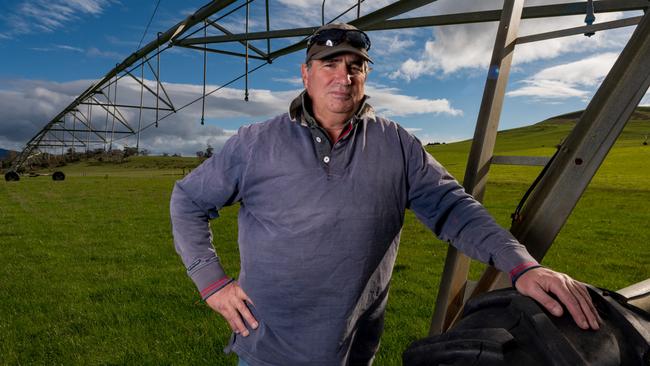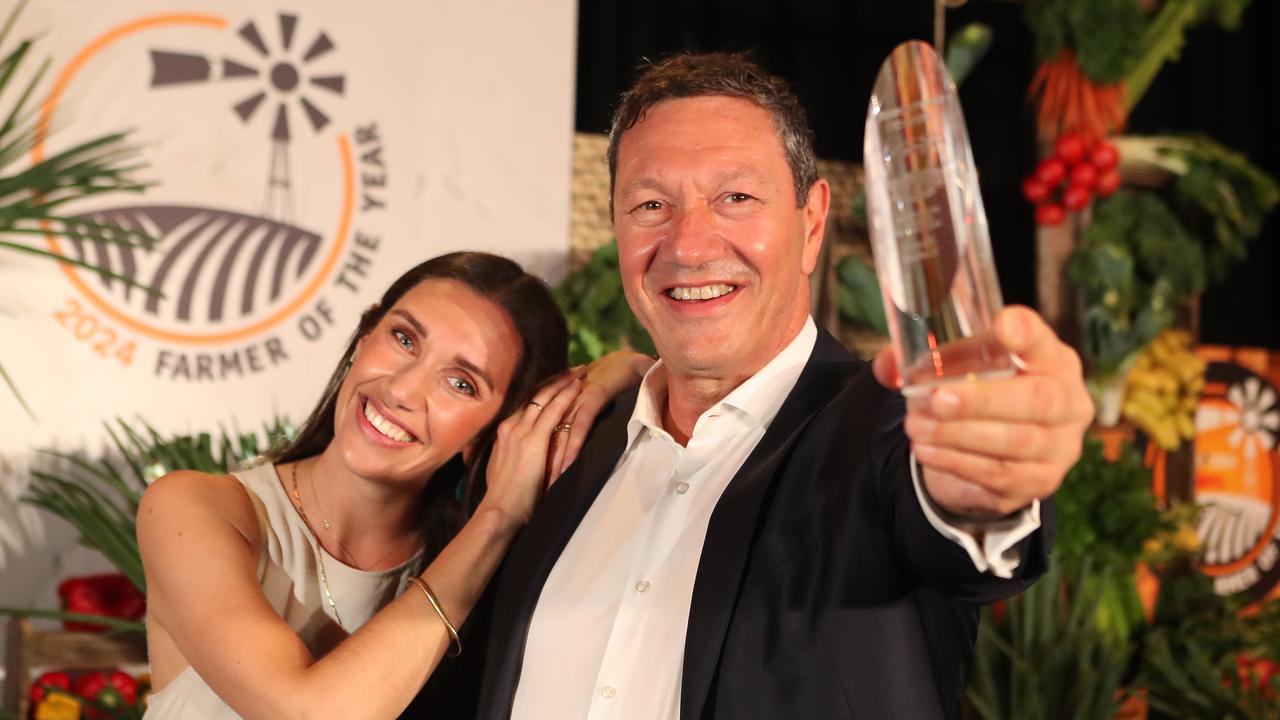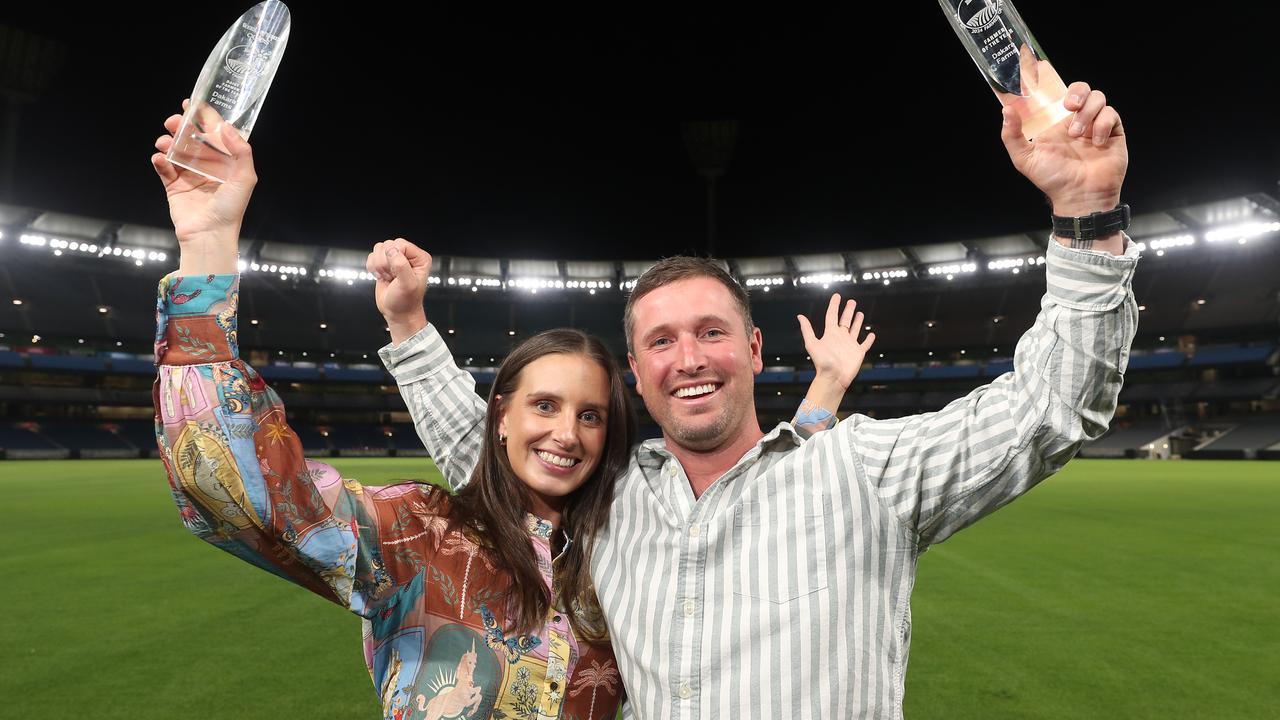The Weekly Times Coles Farmer of the Year awards: 2021 finalists announced
Australian agriculture’s brightest stars have been named as finalists in The Weekly Times Coles Farmer of the Year awards.
The brightest stars in Australian agriculture have been recognised as finalists in The Weekly Times Coles 2021 Farmer of the Year awards.
The awards — which celebrate its 10th anniversary this year — honour the best in beef, cropping, dairy, horticulture, innovation and sheep farming for the 2021 calendar year.
Every Australian state is represented among the 18 finalists with NSW picking up the most with five followed by Queensland (four), Victoria and Tasmania (three each), South Australia (two) and Western Australia (one).
Judging is focused on production, productivity, innovation and sustainability.
The Weekly Times Editor James Wagstaff said hundreds of nominations were received for this year’s awards, which honoured farmers going above and beyond to grow their business during at-times trying conditions, including Covid.
“These awards are an important opportunity to recognise our Aussie farmers,” Mr Wagstaff said.
“No matter the hurdles they face, our farmers keep Australia going, as well as innovating for the future and prosperity of their industries.”
The winners will be announced at a ceremony at Melbourne’s MCG on Friday, March 11, hosted by Olympian and TV personality Giaan Rooney and attended by federal Agriculture Minister David Littleproud and Victorian Agriculture Minister Mary-Anne Thomas.
BEEF FARMER OF THE YEAR FINALISTS
SAM AND SARAH BECKER
JARRAH CATTLE COMPANY
BANANA, QUEENSLAND
The Beckers run a multi-pronged stud and commercial operation on 11,600 hectares, southeast of Rockhampton in Queensland..
As well as selling genetics they turn off 1500 steers and heifers a year. The business is centred on meeting market specifications and produce highest quality carcass possible.
They breed different lines of cattle to suit different production areas with a strong focus on proven genetics for fertility in particular.
Passionate about the future of the industry, they want to see more carcass data feedback morphed into estimated breeding values.
READ MORE ABOUT SAM AND SARAH BECKER
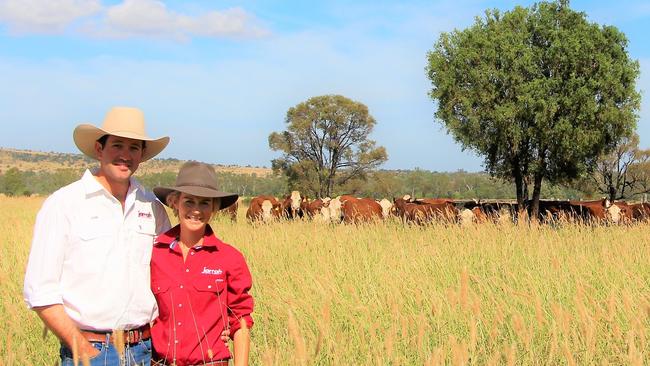
MARC GREENING
INJEMIRA GENETICS
BOOK BOOK, NSW
Marc Greening runs a stud and commercial beef enterprise across five properties totalling more than 4000 hectares at Book Book, near Wagga Wagga, in southern NSW.
As well as running one of the most successful beef studs in Australia – Injemira Beef Genetics – he turns off up to 3000 steers and heifers a year.
The beef trading operation is geared around flexibility, with turnoff to premium grassfed markets managed around feed availability.
Environmentally aware, Marc does not push country with only moderate fertiliser use and no supplementary feed utilised.
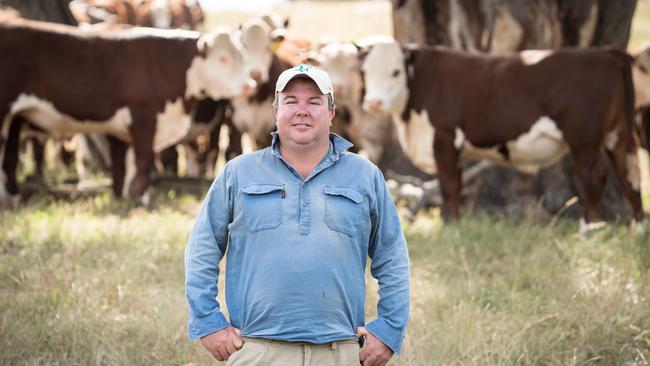
SELWYN AND JOCELYN MALLER
HAMILTON PARK WAGYU
WALLUMBILLA, QUEENSLAND
The Maller family operate a large-scale Wagyu beef business across six properties totalling 40,000 hectare in three districts of Queensland.
Traditional Hereford producers, they made switch to Wagyu in the late 1990s and in the past five years have almost double the size of their herd to 2500 cows.
They use the latest technology such as artificial insemination, in-vitro fertilisation and carcass feedback to improve herd, with their cattle winning numerous branded beef competitions. They are now in the process of launching their own retail venture to market their wares and breed.
READ MORE ABOUT THE MALLER FAMILY
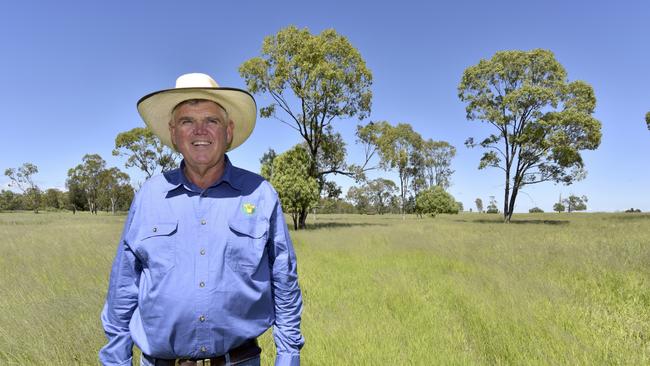
CROPPING FARMER OF THE YEAR FINALISTS
DAVIDSON FAMILY
MERRIVALE PARTNERSHIP
TAMBAR SPRINGS, NSW
The Davidson family grows 5000 hectares of wheat and barley and 1550 hectares of sorghum as part of their farming business at Tambar Springs, on the NSW Liverpool Plains.
They are active in local research work, use careful fallow management, and has invested in precision weed-spraying technology and use soil testing to determine paddock-specific nutrient applications.
They have 15,000 tonnes of on-farm silo capacity to give them the ability to ride out market and production viability.
READ MORE ABOUT THE DAVIDSON FAMILY
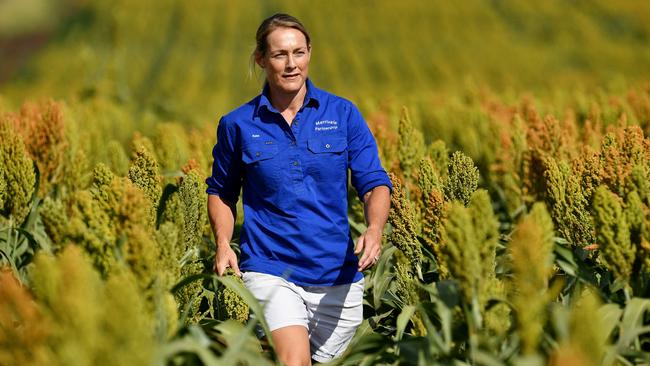
BEN ERWIN
BANNOCKBURN, VICTORIA
Ben Erwin runs a large-scale but unique cropping enterprise across 14 different properties he leases or sharefarms in western Victoria. He crops about 1620 hectares of beans, canola, wheat and barley.
Ben sticks to rotations that fit each property and soil type, and looks for a return on investment with every input. His focus is on profitability, not the biggest yields.
Ben, who goes contract windrowing in centralwest NSW every year, places a strong emphasis on good staff.
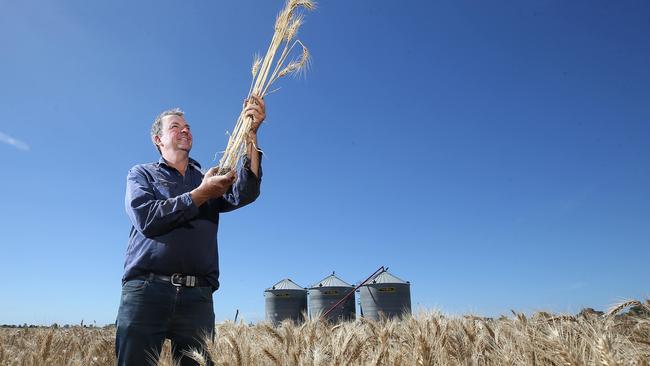
POLKINGHORNE FAMILY
KINGARA FARMS
LOCK, SOUTH AUSTRALIA
The Polkinghorne family’s business covers 7000 hectares across several properties near Lock on South Australia’s Eyre Peninsula. They grow wheat, lentils and canola and have invested heavily in precision agriculture and rotations to suit individual properties.
They use variable-rate seeding, installed a protein meter to allow for even delivery of grain, invested in weed-seeker technology, and make use of vegetation indexes to identify good crops and those not performing.
READ MORE ABOUT THE POLKINGHORNE FAMILY
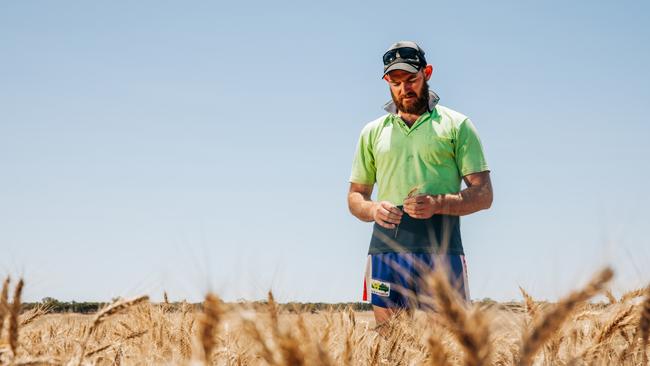
DAIRY FARMER OF THE YEAR FINALISTS
FRAMPTON FAMILY
GAWLER, TASMANIA
The Frampton family has been dairy farming for six generations, running a herd of 400 crossbred milking cows at Gawler in northwest Tasmania.
They are focused on efficiencies and herd fertility with their cows finely tuned to turn a profit, year-in, year-out. Profits are more than double average local dairy farms while costs are about half.
Sustainability is front and centre: they plant trees, don’t make silage, don’t use nitrogen and apply only maintenance levels of other fertilisers.
They run a battery-powered quad bike, have solar panels which have reduced power costs at the dairy by two thirds and operate timers that help manage electricity usage in the dairy.
READ MORE ABOUT THE FRAMPTON FAMILY
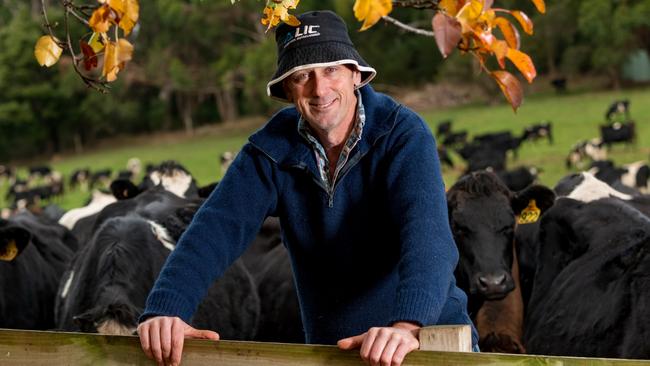
GARDNER FAMILY
TUNBRIDGE, TASMANIA
The Gardners run 1250 dairy cows on 2400 hectares at Tunbridge in Tasmania’s Midlands region.
The dairy is located in the middle of traditional fine-wool Merino country, with the farm undergoing huge change with the introduction of irrigation.
The family sees massive opportunities in the fight against climate change. They conducted a large-scale trial of growing asparagopsis seaweed after research showed it reduced methane emissions within herds and also supported production.
They moved to once-a-day milking in 2020 and the business has grown from 3.25 million litres five years ago to 5.81 million litres.
READ MORE ABOUT THE GARDNER FAMILY
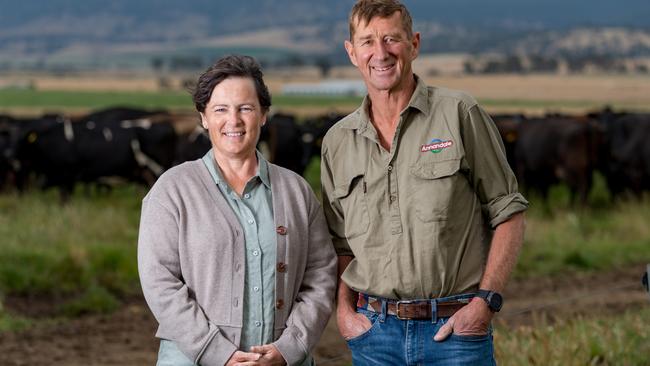
RUSSELL FAMILY
BEGA VALLEY, NSW
The Russell family has been farming their property in the NSW Bega Valley for 160 years. They milk 300 mostly registered Illawarra cows across 125 hectares.
They are focused on production growth, growing cow numbers and increased profits. They also understands the need for cost control and the importance of maximising homegrown feed.
The Russells have a measured and managed approach to pastures and irrigation, which has paid dividends with yield increases across the board. Per-cow production has increased from 460-470kg of milk solids to 510kg.
READ MORE ABOUT THE RUSSELL FAMILY
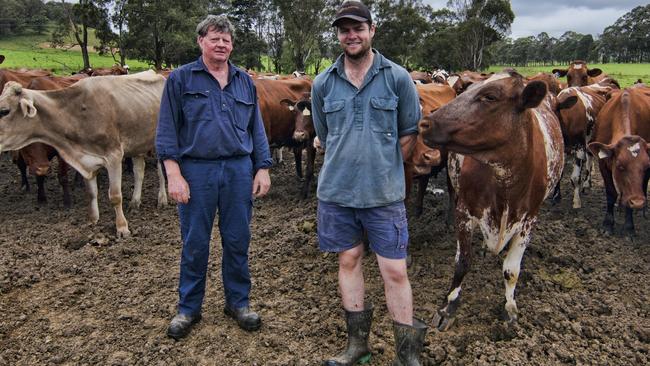
HORTICULTURE FARMER OF THE YEAR FINALISTS
MOFFATT FAMILY
MOFFATT FRESH PRODUCE
TAROME, QUEENSLAND
The Moffatt family grows 28,000 tonnes of carrots, almost 10,000 tonnes of onions and five to six million bunches of celery. The business is based at Tarome in southeast Queensland but operates across four growing regions.
With a strong focus on sustainability, the Moffats minimise food wastage, sell second-grade product ‘ugly’ range and concentrate on using lighter grades of plastic to reduce landfill. Always looking for better alternatives for biodegradable or recycled products.
They employ more than 200 staff and have placed a big emphasis on growing export markets.
READ MORE ABOUT THE MOFFATT FAMILY
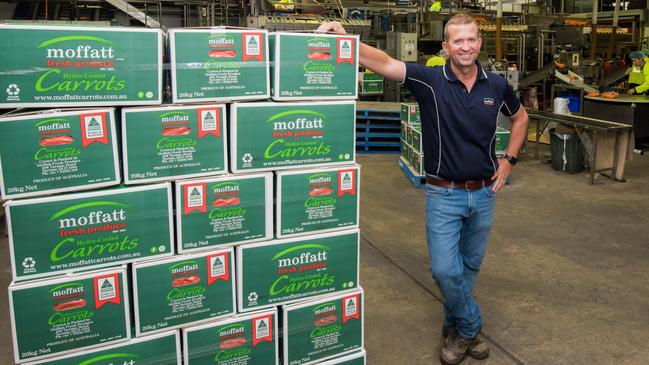
ANDREW AND DAVID MOON
MOONROCKS
ST GEORGE, QUEENSLAND
Brothers Andrew and David Moon are the fifth generation of their family to farm, operating across 526 hectares at St George in western Queensland.
They operate their business Moonrocks, which grows onions as well as garlic, pumpkin, broccoli and sweet corn. They supply supermarkets nationally and employ up to 120 workers.
To reduce wastage they have formed a stand-alone company, Fresh Peel Pty Ltd, to produce peeled onions. During Covid they released the G’Day Garlic range of garlic powders to counter a reduction in garlic orders.
READ MORE ABOUT ANDREW AND DAVID MOON
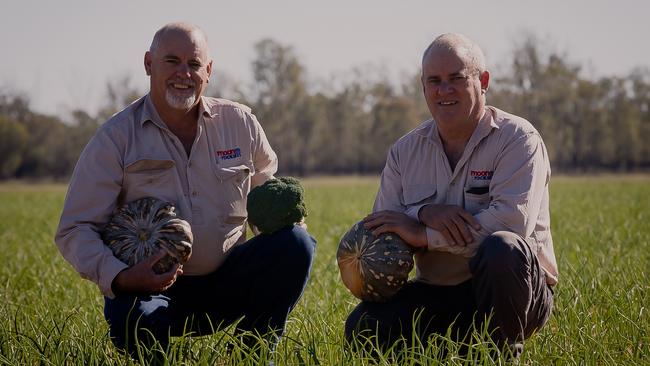
YOUNG FAMILY
REDGOLD
WEMEN, VICTORIA
The Young family operates the Redgold horticulture business near Wemen in northwest Victoria, specialising in the winter supply of leafy baby green salads as well as iceberg and cos lettuce.
They place a big emphasis on technology and have refined rotations and irrigation methods around managing potential water supply issues and maximising yield on a water-usage basis.
They place a big emphasis on sustainability and, by purchasing carbon offsets, were officially declared carbon neutral last October.
READ MORE ABOUT THE YOUNG FAMILY
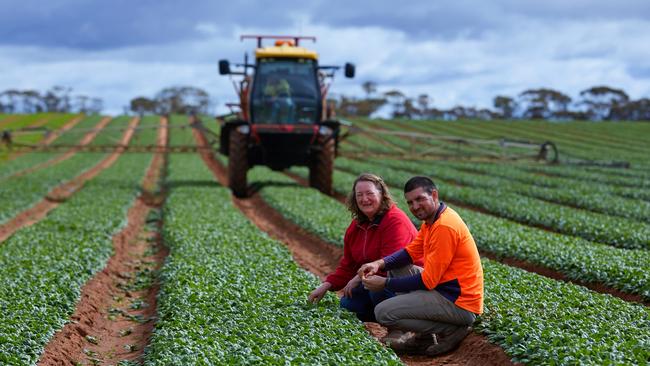
INNOVATIVE FARMER OF THE YEAR
CRESSIDA AND MICHAEL CAINS
PECORA DAIRY
ROBERTSON, NSW
Cressida and Michael Cains run a flock of 150 East Friesian ewes on 80 hectares, nestled in lush rainforest near Robertson in the NSW Southern Highlands.
They have a gentle approach to the land, animals and cheeses, and a decade ago launched Pecora Dairy. They now make nine tonnes of cheese a year in five varieties plus pot-set yoghurt.
The Cains have won a raft of awards and have worked with some of Australia’s and the world’s biggest-name chefs. Cressida was named 2020 NSW Rural Woman of the Year for helping others tap into resources to create successful value-added products.
READ MORE ABOUT CRESSIDA AND MICHAEL CAINS
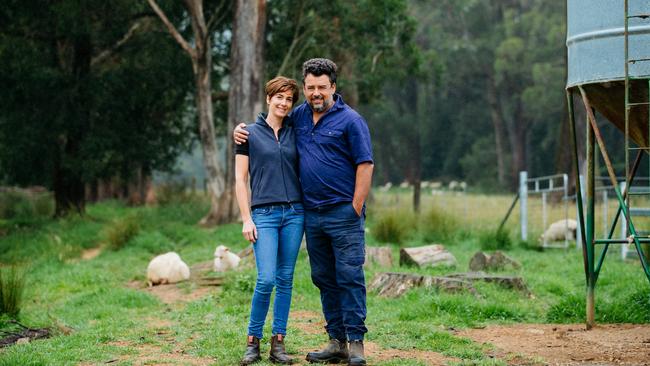
HEINRICH FAMILY
WUNDERBAR LAMB
BLACK SPRINGS, SOUTH AUSTRALIA
Fifth-generation farmer Ben and Kerry Heinrich run 1000 ewes on 780 hectares near Black Springs in South Australia’s Clare Valley.
The couple places a strong emphasis on eating quality and animal welfare, aiming to produce premium free-range lamb to the highest standards. They were the first lamb producers in Australia to be certified through Humane Choice.
The Heinrichs launched their own brand, Wunderbar Lamb, in 2014 and sells direct to chefs, butchers, independent supermarkets and locals in the Mid North and Adelaide regions of SA, with plans to expand their customer base.
READ MORE ABOUT THE HEINRICH FAMILY
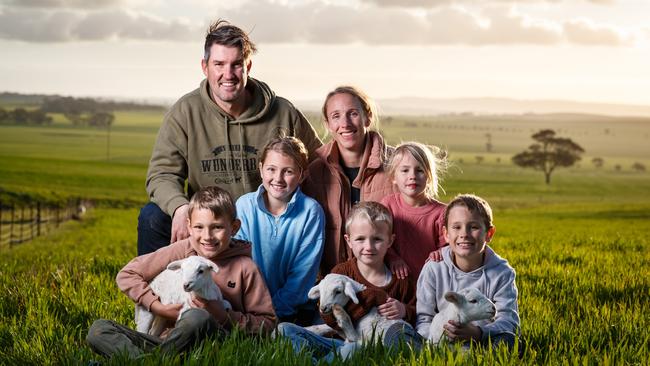
LIAM AND FIONA MANN
BLOCK 275
ERADU, WESTERN AUSTRALIA
West Australian farmers Liam and Fiona Mann have hit gold with their pressed canola oil.
The couple, from Eradu, about 100km east of Geraldton, doesn’t own any land but lease from Fiona’s parents an area of 680 hectares of arable land.
A clear understanding that this was not a viable stand-alone farming area meant they looked at ways to diversify their income stream, including contract harvesting and spraying. They came up with an idea of pressing their own canola oil, launching the Block 275 brand in late 2020. The oil retails for about $18 for 500ml or $36 a litre, well beyond the generic canola oil bought in supermarkets.
READ MORE ABOUT LIAM AND FIONA MANN
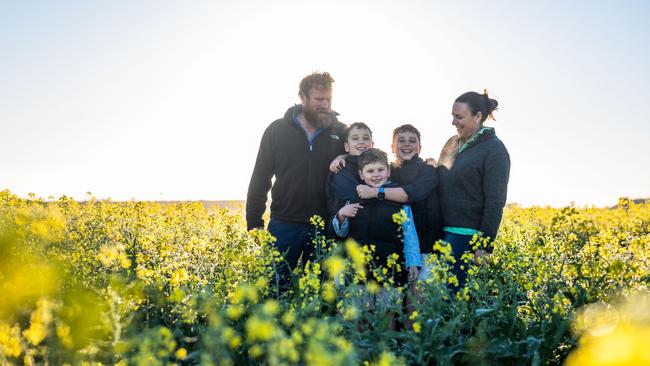
SHEEP FARMER OF THE YEAR FINALISTS
CARTER FAMILY
WALLALOO PARK MERINOS
MARNOO, VICTORIA
The Carters run one of Australia’s best-known Merino studs, Wallaloo Park, at Marnoo in western Victoria.
The business operates across 4000 hectares, thanks to steady acquisition of land over the past 30 years. Flock cuts 8.5kg of wool and weans 130 per cent of lambs (up from 100 per cent 10 years ago).
The Carters have seen huge efficiency gains using data. Over the past year has increased data collection as it moves towards an early maturing, dual-purpose animal that will fit into all environments. The impact of the data collection is already apparent in their ram sale results, with rams featuring improved ASBVs averaging about $1000 more.
READ MORE ABOUT THE CARTER FAMILY
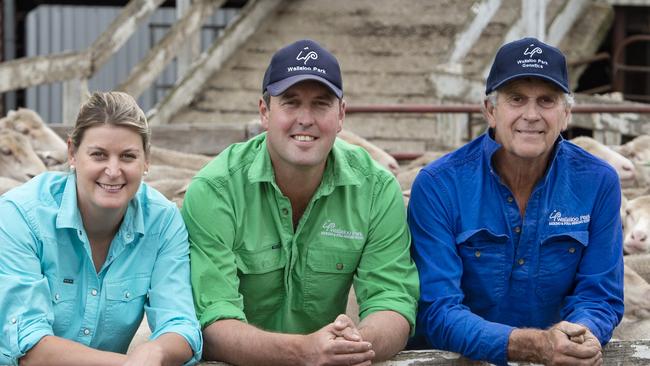
HOOKE FAMILY
EAST LODDON MERINOS
WANGANELLA, NEW SOUTH WALES
The Hooke family runs about 1000 stud ewes and 10,000 commercial ewes across 25,900 hectares in the western Riverina region of NSW.
The family is putting a modern spin on Merino production in the district. They use Australian Sheep Breeding Values to benchmark for quality. Conscious of evolving consumer demands, the flock is now 100 per cent mulesed free.
The Hookes have achieved Responsible Wool Standards accreditation, which audits everything from shearer to dog welfare and they are now keen to explore how they might use regenerative agriculture across their broad acreage.
READ MORE ABOUT THE HOOKE FAMILY
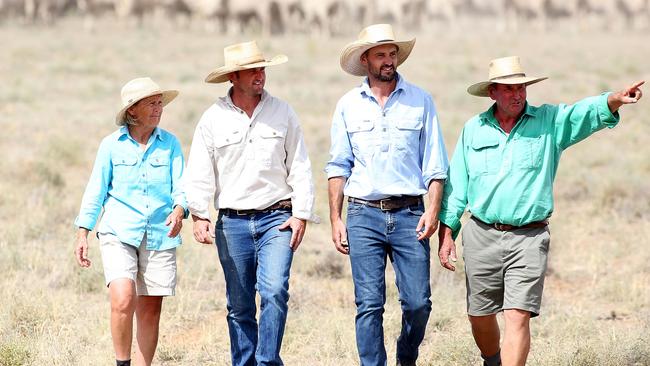
GEORGE AND GALINA SHEA
LYNDALL FARM
HAMILTON, TASMANIA
At Hamilton, about an hour’s drive northwest of Hobart, George and Galina Shea run 1100 ewes producing 1700 lambs as part of a business focused on maximising profits through eating quality.
The Sheas invest heavily in genetics, placing a strong emphasis on selection for intra-muscular fat.
They have established strong links along the supply chain, forming a business relationship with Tasmanian butcher shop Meat Mistress, which stocks its lamb and acts as a wholesaler to top-end restaurants in Hobart. Proof is in the pudding: Lyndall Farm lamb was a gold medallist in the 2021 delicious Harvey Norman Produce awards.
READ MORE ABOUT GEORGE AND GALINA SHEA
